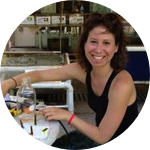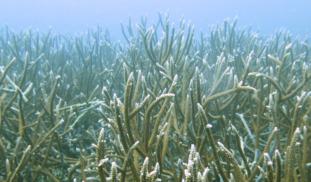Please wait...
About This Project
If we understand what is damaging coral reefs, we can save them. White band disease is responsible for destroying up to 95% of two threatened reef-building coral species in the Caribbean. In spite of the devastating effects of the disease, a pathogen has not been identified. We aim to identify the cause of white band disease using infection experiments in order to develop methods of controlling disease outbreaks.

Browse Other Projects on Experiment
Related Projects
Out for blood: Hemoparasites in white-tailed deer from the Shenandoah Valley in Northern Virginia
Our research question centers about the prevalence and diversity of hemoparasites that infect ungulate poplulations...
Using eDNA to examine protected California species in streams at Hastings Reserve
Hastings Reserve is home to three streams that provide critical habitat for sensitive native species. Through...
How do polar bears stay healthy on the world's worst diet?
Polar bears survive almost entirely on seal fat. Yet unlike humans who eat high-fat diets, polar bears never...





